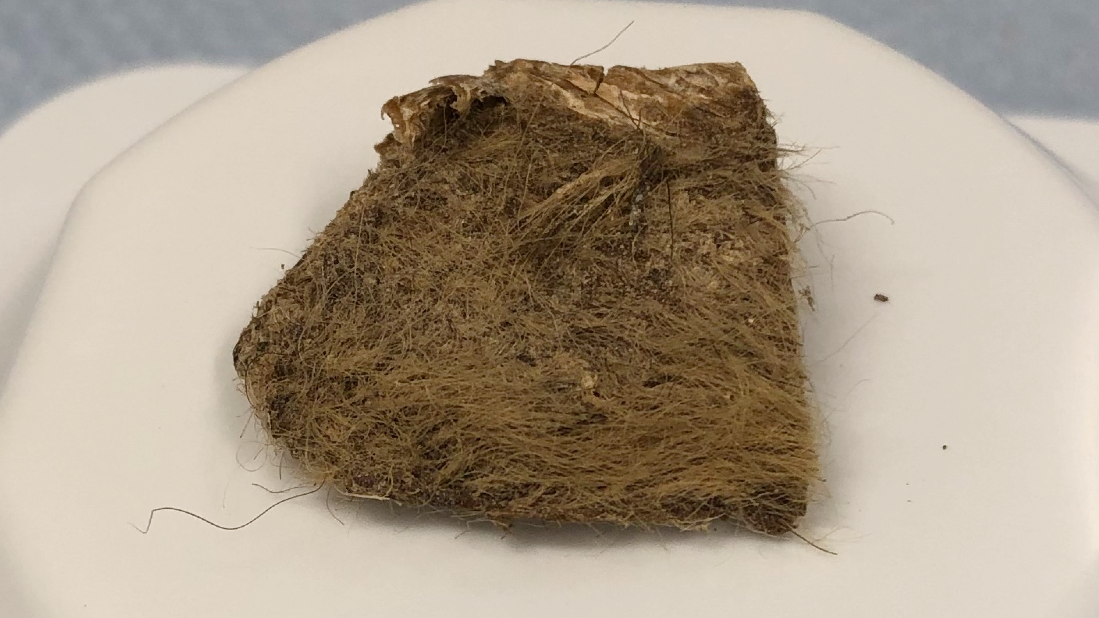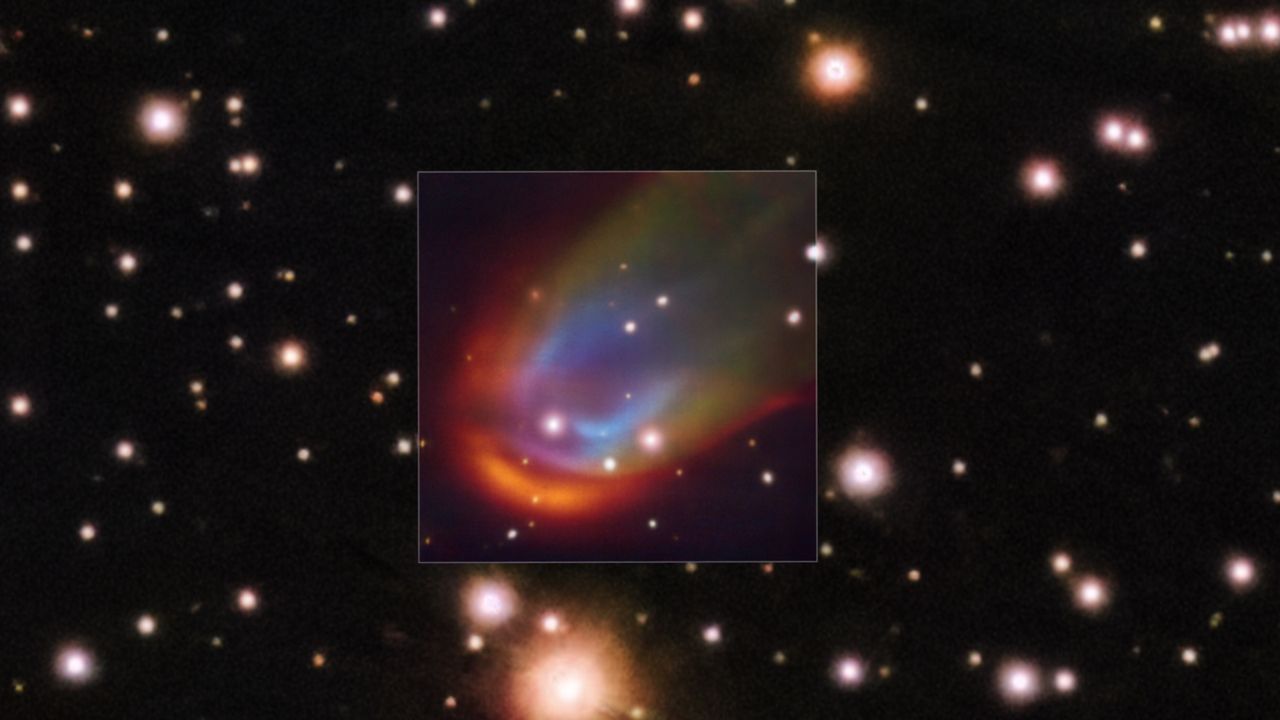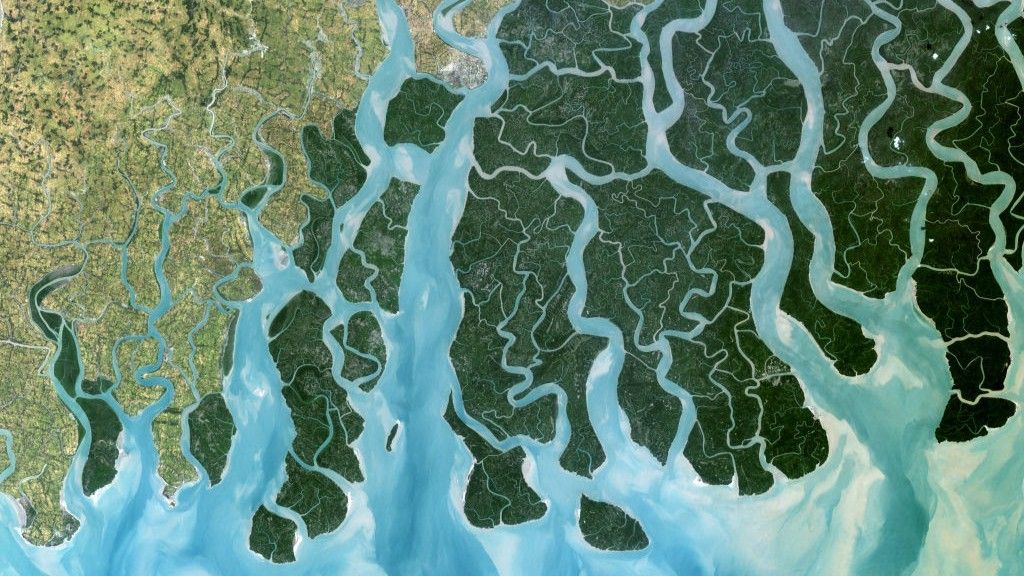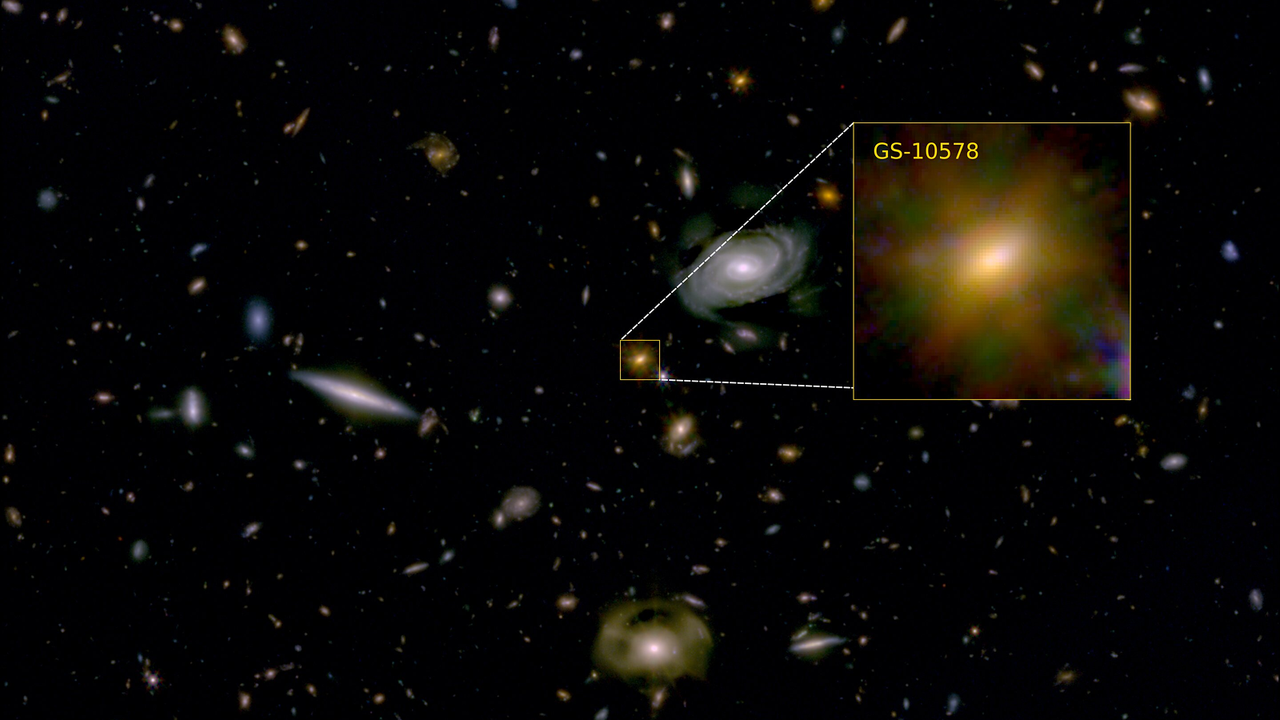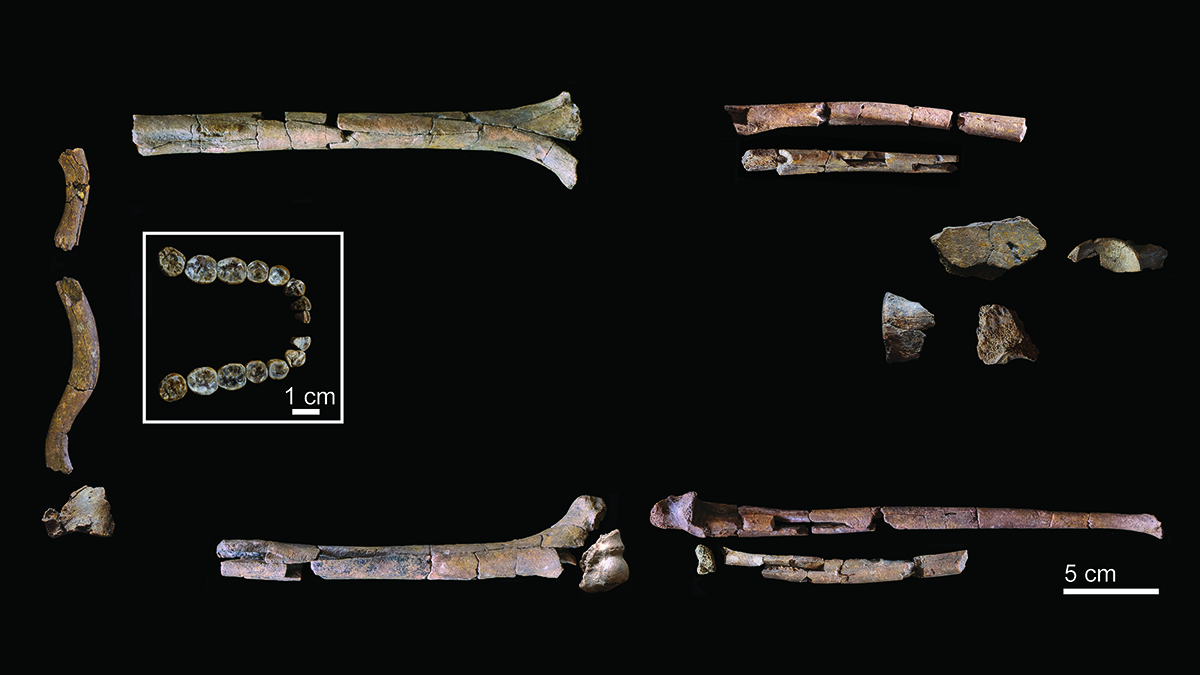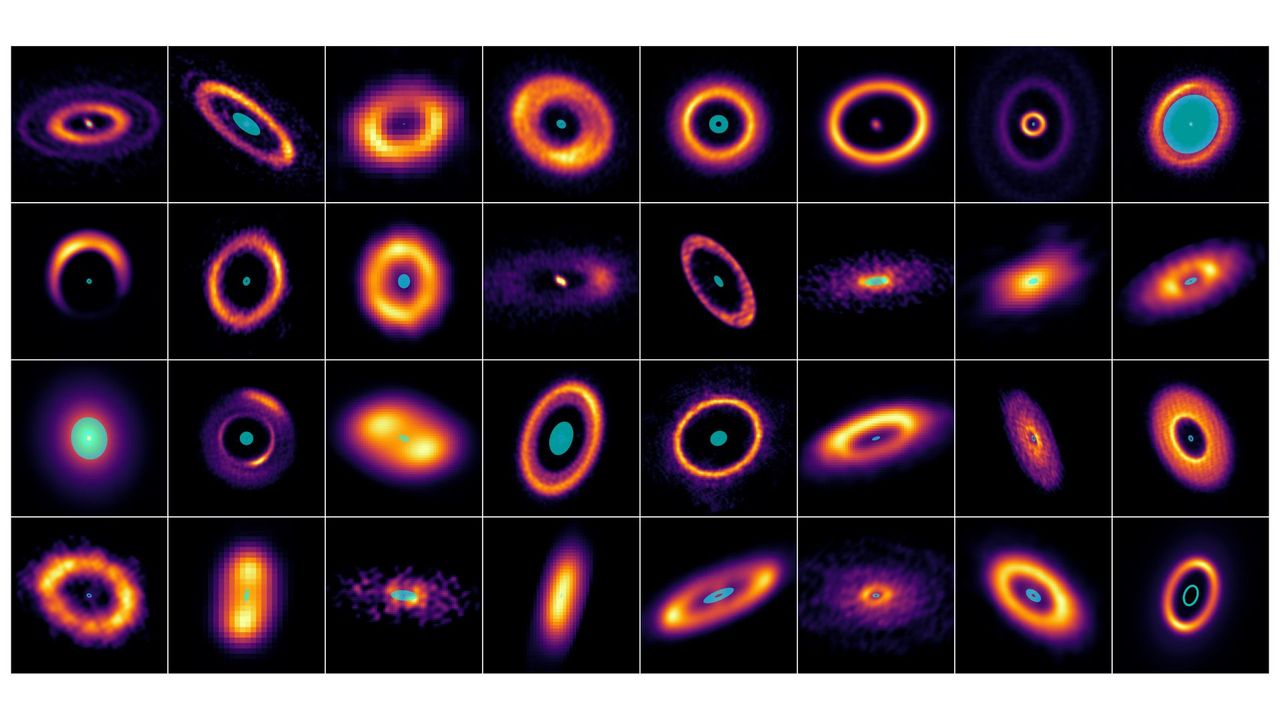Science
Black hole butterflies? James Webb telescope spots dozens of black hole 'cocoons' in early universe.
NeutralScience
The James Webb Space Telescope has identified numerous gaseous cocoons surrounding small black holes in the early universe, suggesting these 'little red dots' may be more complex than previously understood. This discovery provides new insights into the formation and evolution of black holes shortly after the Big Bang.
One of the last woolly rhinos to walk Earth was eaten by a wolf pup — and scientists have now sequenced its genome from the undigested meat
NeutralScience
Scientists have sequenced the genome of a woolly rhinoceros from undigested remains found in the stomach of a wolf pup that lived over 14,000 years ago. This discovery provides valuable insights into the extinction of the woolly rhino, a species that roamed the Earth during the Pleistocene epoch.
'One of those rare 'wow' moments': Zombie star near Earth has a rainbow shockwave that 'shouldn't be there'
PositiveScience
A recent study has identified a unique white dwarf star, RXJ0528+2838, which is producing a rainbow-like shockwave as it travels through the Milky Way, while simultaneously disrupting its companion star. This phenomenon is described as a rare and astonishing occurrence in the field of astrophysics.
18 of Earth's biggest river deltas — including the Nile and Amazon — are sinking faster than global sea levels are rising
NegativeScience
Research indicates that 18 of the world's largest river deltas, including the Nile and Amazon, are sinking at a rate that exceeds the rise in global sea levels. This phenomenon poses a significant threat to millions of residents living in these vulnerable areas, increasing the risk of severe coastal flooding and land loss.
Strange, 'starved' galaxy died 'a death of 1,000 cuts' in the ancient universe, JWST reveals
NeutralScience
New observations from the James Webb Space Telescope (JWST) reveal that a supermassive black hole in an ancient galaxy likely starved the galaxy of gas necessary for star formation, leading to its demise described as 'a death of 1,000 cuts'. This finding enhances understanding of the early universe's dynamics.
MIT's chip stacking breakthrough could cut energy use in power-hungry AI processes
PositiveScience
MIT has achieved a significant breakthrough in chip stacking technology, which could drastically reduce energy consumption in artificial intelligence (AI) processes by minimizing the distance data must travel between memory and logic components. This innovation is expected to enhance the efficiency of power-hungry AI applications.
Most complete Homo habilis skeleton ever found dates to more than 2 million years ago and retains 'Lucy'-like features
PositiveScience
Scientists have unveiled the most complete skeleton of Homo habilis, dating back over 2 million years, which exhibits features reminiscent of the famous fossil known as Lucy. This discovery marks a significant advancement in understanding early human ancestors and their physical characteristics.
Diagnostic dilemma: A man's sudden seizures were set off by sudoku
NeutralScience
A German man began experiencing seizures after completing sudoku puzzles, a condition that arose in the weeks following a ski accident. This unexpected medical issue highlights the potential neurological effects that seemingly benign activities can have after trauma.
Some objects we thought were planets may actually be tiny black holes from the dawn of time
NeutralScience
Scientists have proposed that some of the over 6,000 exoplanets identified beyond our solar system may not be planets at all, but rather tiny black holes formed in the early universe. This hypothesis suggests a need to reevaluate how celestial objects are classified and understood.

